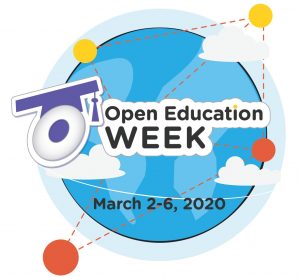Want to know more about Creative Commons licensing? Check out a new self-paced Creative Commons workshop on our eLearning Workshops site.
Creative Commons is first and foremost a non-profit organization that supports creators to both retain their copyright and to freely share their creations as they choose, and allows others to Retain, Revise, Reuse, Remix, and Redistribute those creations. Creative Commons is also recognized as a set of free-to-use licenses allowing copyright owners to show how they want their work to be shared. In this online workshop, you will learn more about Creative Commons (CC) and how CC licenses can be used to support the adoption, creation, adaption, etc. of open resources for you and your students.
Our Creative Commons Workshop (created by Emily Schudel as her final project in her Creative Commons Certification program) should take you 2-3 hours to complete, between reading the materials and completing the suggested activities. By the time you complete this workshop, you will be able to:
- Find CC-licensed material you can use in your own course(s).
- Create, adapt, and share CC-licensed works for your subject area.
- Apply the appropriate CC-license to works you create or adapt for your course(s) and release them as Open Educational Resources (OER).
If you have any questions or comments as you go through our workshop, please email Emily Schudel.

 Some of you may know that last term, I completed the
Some of you may know that last term, I completed the